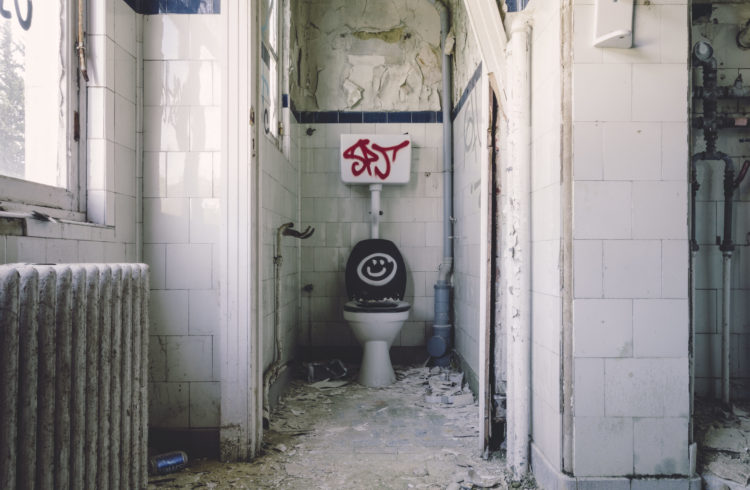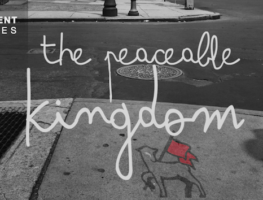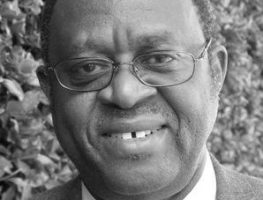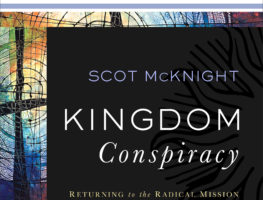When it comes to gender, we’ve reached new levels of flux in North America. The introduction of transgender, cisgender, bigender, among other gender classifications into mainstream culture has injected a whole new fluidity into how we understand ourselves via gender heretofore unknown within the bounds of Western Christendom. The differentiating of gender from sexual orientation has added more complexity to the navigation of gender and sexuality in our current culture.
How have Christians responded? How should a Christian respond?
Who is in Charge of Culture?
The reaction within the Church (at least the protestant one) has been predictable. It has split between the evangelical conservatives and progressive evangelicals/mainlines with the evangelical conservatives going the way of defense – defending a traditional (in terms of the last 200 years) gender binary in their institutions and in culture, and the protestant mainline/progressives going the way of accomodation – affirming the various gender identities as a legitimate self expression of gender as part of God’s (ongoing) good creation.
Both of these reactions, I contend, are the default habits of a Church caught in Christendom. In other words, as I see it, both of these reactions seek to relate to the culture as if the Church were in charge. We either defend and protect our ensconced gender patterns by holding fast to traditional binary gender categories as if we should have the right to impose/influence our traditional categories onto the culture. Or we affirm the cultural categories we are being challenged by, because again, we see ourselves as inextricably linked to this culture (we dare not withdraw from this culture) and we have a role to play in endorsing cultural developments. Conservative and progressive responses to gender identity assume the Church should be in charge. Click To Tweet
In either case, we make secondary the task of contextually engaging the challenge of gender in our times within the integrity of who we are in Christ, the work of God in the world, and (most importantly) the gospel of Jesus Christ.
North Carolina and Christendom Dynamics
We have seen these dynamics played out in North Carolina recently. The state of North Carolina is a very Christendom place—one of the few left. Through House Bill 2, the state legislatively imposed traditional binary bathrooms as the norm for the state. Backed by Christendom forces (in this case the conservative protestants), the state sought to enforce (and define) a gender binary upon all public bathrooms.
This gender binary (the way we view men and women and all of the imagery and caricature involved) was largely worked out over the past two hundred years via a Christian-led navigation of gender roles in family/work etc. and the industrialized economies of the West. By merely seeking to defend and continue this gender binary as is, we do not allow space for a self-examination and critique of it. It becomes frozen in time.
And yet for fifty years or so this gender binary has been under some form of attack. I am not only speaking about the distinction between male and female but the way the distinction has been caricatured in particular ways in our culture (say via Hollywood) and our churches as normative. The gender binary has been under attack for 50 years. Click To Tweet
More and more people have not fit in—so there’s a pushback from those who don’t fit the binary. An alliance of Christians arise to support them. Transgender people, (it is argued) not fitting the two gender types, should be able to express their gender as authentically “as the next guy or gal” (or neither). Christians should throw our support behind them and stand with them. And yet here as well, the rush to affirm forecloses the space needed to examine the struggles and antagonisms at work behind and amidst the expression of alternative gender identities.
A Kingdom Alternative?
But, instead of engaging culture on these Christendom terms, what about the Church just rejecting the cultural roll of guiding gender formation at all?
In good post-Christendom fashion, why not just acknowledge our society is not Christian in its foundations? This rejection would mean there would be no reason to think that our culture would form gender structures that would account for the gospel and the work of Christ in redeeming gender relations? Why don’t we the church just opt out of supporting legislation one way or the other and instead seek to gather ourselves as a people, to take a good long look at gender constructs within our past history?
Let us then navigate and discern what gender distinctions might look like for us under the in-breaking Kingdom of God, under the one Lordship? Within the practices of the church? Why not just acknowledge our society is not Christian in its foundations? Click To Tweet
Listening Space
How about opening space to listen to those among us and around us who are struggling and/or merely wishing to challenge the existing gender constructs as offered within the Church and society. Let’s do this locally, in an ongoing practice of living life among this culture. Let us sort out and let God work among us in our gendered relationships.
This means that the Church dialogues with our culture on these matters. Indeed it is the challenge that the alternative gender constructs bring into our lives that present the need for such dialogue. Here we have opportunity to open space for what God would do among us.
In doing so, let us not get caught up in society’s antagonisms and culture wars. Let us be present enough to reveal the contradictions/antagonisms at work sufficient to open up space locally for real conversations and presence!
An Experiment with the Bigger Questions
At this point a little experimenting might be good. For instance, instead of North Carolina churches enforcing/defending a traditional gender binary over and against the challenge of transsexuals to traditional gender binary bathrooms, why not ask bigger questions? For instance, why not abolish all gender in public? That would start a good conversation!
Why not join in with many of the current voices and say: OK, we agree! the current gender binary is oppressive! Then (pulling a Zizek here), let us point to all the ways many of the current gender constructs (especially the glamorous sexualized male/female binary offered by Hollywood) are oppressive!! Then, let’s push even further!! Let us abolish the use of all gender pronouns! Call each other “it’s.” And then let us take notice how the NBA (which pulled its All Star game out of Charlotte in the name of gender justice!), which started the WNBA, must no longer have gender specific leagues!! How dare you! (I recognize this is a Zizekian tactic to the excessive but I love it).
I recognize this could be construed as an exercise in provocation, but it serves a purpose. It reveals the contradictions and antagonisms at work in our culture in relation to gender. It breaks down the dividing lines and opens space for examining what is happening here in our society’s gender wars? From here, I suggest, having opened space, perhaps the Church can now set about the task of working out what our gender specifics as God’s people in Christ would look like under the integrity of who we are as the church, not citizens of the United States. We are no longer tempted to take charge or ride the waves of our culture’s current gender antagonisms.
Don’t Get Caught Up
In summary then, I am strongly suggesting that the presence of the Church need not get caught up in the gender wars of our culture. Instead, we can be a people which makes space among ourselves and in the world to shape a new sense of what it might mean to be male and female.
We can be a people that makes space for the presence among us of transgender or bisexual people and ask what do they tell us about the way these gender binaries have worked. We can ask what it might mean to make space for those who do not fit into these binaries as given. Allow God to work in and among us beyond the antagonisms of House Bill 2 in North Carolina.
In my next post I will talk more specifically about what might go on in such a space of engagement. I will offer three markers of the gospel’s work among us in forming gender in our time.
Special Note: Sexual ethics and culture is a part of Northern Seminary’s Masters in Theology and Mission. Check it out here.
In addition, I believe that the upcoming summit SheLeads, put on by Missio Alliance, will be a place to flesh out some of these gender issues. Since gender by definition includes both men and women, we need both to have discussions like this. So come on men!! Join me at the #SheLeads Summit Oct 29. There are 7 different regional venues besides the main location here in Chicago at Northern Seminary. Here’s the link!










Missio Alliance Comment Policy
The Missio Alliance Writing Collectives exist as a ministry of writing to resource theological practitioners for mission. From our Leading Voices to our regular Writing Team and those invited to publish with us as Community Voices, we are creating a space for thoughtful engagement of critical issues and questions facing the North American Church in God’s mission. This sort of thoughtful engagement is something that we seek to engender not only in our publishing, but in conversations that unfold as a result in the comment section of our articles.
Unfortunately, because of the relational distance introduced by online communication, “thoughtful engagement” and “comment sections” seldom go hand in hand. At the same time, censorship of comments by those who disagree with points made by authors, whose anger or limited perspective taints their words, or who simply feel the need to express their own opinion on a topic without any meaningful engagement with the article or comment in question can mask an important window into the true state of Christian discourse. As such, Missio Alliance sets forth the following suggestions for those who wish to engage in conversation around our writing:
1. Seek to understand the author’s intent.
If you disagree with something the an author said, consider framing your response as, “I hear you as saying _________. Am I understanding you correctly? If so, here’s why I disagree. _____________.
2. Seek to make your own voice heard.
We deeply desire and value the voice and perspective of our readers. However you may react to an article we publish or a fellow commenter, we encourage you to set forth that reaction is the most constructive way possible. Use your voice and perspective to move conversation forward rather than shut it down.
3. Share your story.
One of our favorite tenants is that “an enemy is someone whose story we haven’t heard.” Very often disagreements and rants are the result of people talking past rather than to one another. Everyone’s perspective is intimately bound up with their own stories – their contexts and experiences. We encourage you to couch your comments in whatever aspect of your own story might help others understand where you are coming from.
In view of those suggestions for shaping conversation on our site and in an effort to curate a hospitable space of open conversation, Missio Alliance may delete comments and/or ban users who show no regard for constructive engagement, especially those whose comments are easily construed as trolling, threatening, or abusive.